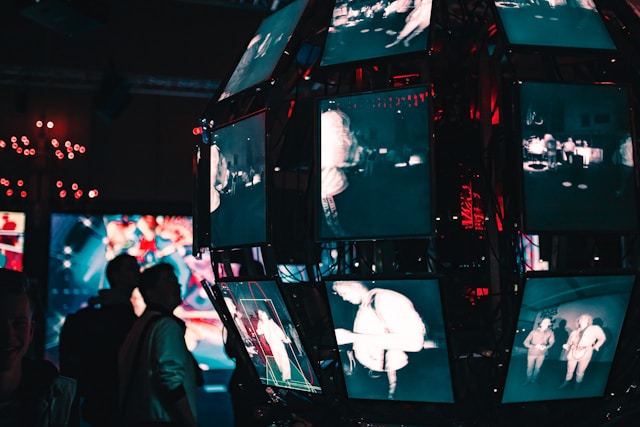For decades, the perception of the gambling industry has been, understandably, tinged with a certain melancholy. Historical narratives frequently leaned heavily on narratives of ruin, of societal disruption, and of individuals grappling with unforeseen consequences. While those realities undoubtedly exist for a segment of the population, the landscape is undergoing a profound transformation—one primarily fueled by digital innovation and a shift in how we conceptualize entertainment and risk. The pace isn’t sudden; it’s a steady current, reshaping experience, delivery, and regulation, a current that experienced commentators are beginning to map with increasing precision.
The Rise of Immersive Experiences
We’ve moved far beyond the static, pixelated slots of yesteryear. The core principle remains the same—the thrill of chance—but the how has radically shifted. Virtual Reality (VR) and Augmented Reality (AR) are no longer futuristic pipe dreams within casino environments. We’re seeing tangible deployments, albeit still in their nascent stages. Imagine placing your bets in a simulated Monte Carlo casino, the sounds, even the smoky atmosphere, rendered with startling realism. Or scrutinizing a poker table that dynamically adjusts to the number of players, presenting a more engaging and believable tableau. The underlying technology is rapidly maturing, and the cost is decreasing—a sweet spot for casinos looking to differentiate themselves.
Beyond the 2D Screen: Interactive Storytelling
It’s not just about replicating physical spaces; it’s about crafting new narratives around gaming. Game developers are utilizing branching narratives, where player choices directly influence the game’s progression and payout. This approach, increasingly borrowed from the interactive fiction and RPG genres, adds a layer of agency that traditional slots or table games rarely offer. Data suggests that players are actively seeking this level of engagement—time spent on these interactive titles consistently exceeds that of more passive formats. This also introduces a variable element of risk assessment that’s typically absent in purely chance-based activities.
The Data-Driven Advantage
The shift towards personalized experiences isn’t just about aesthetics; it’s fundamentally about leveraging data. Sophisticated algorithms, often underpinned by machine learning, are now capable of analyzing player behavior with unprecedented granularity. This isn’t about targeting vulnerabilities; it’s about tailoring the experience to individual preferences. A player consistently leaning towards high-stakes roulette might receive subtly adjusted odds or bonus offers, while someone favoring slower-paced blackjack could be presented with progressive table limits or unique side bets. The key here is transparency – responsible operators are building user trust by explicitly demonstrating how data is used to enhance the gaming experience.
Blockchain and the Decentralization Debate
The arrival of blockchain technology has injected a potent dose of complexity and speculation into the conversation surrounding the future of gambling. While fully decentralized casinos – often referred to as “Play-to-Earn” platforms – are still largely experimental, the underlying principles present both compelling opportunities and significant regulatory hurdles. The promise of provably fair gaming, where outcomes are independently verifiable on the blockchain, is a particularly attractive proposition. This tackles a persistent issue within the industry—the need for independent assurances of fairness.
Gaming Tokens and Ecosystems
Many nascent platforms are experimenting with their own in-house cryptocurrencies and tokens. These are used to reward participation in the ecosystem, unlock exclusive features, or even provide direct access to higher-stakes games. This moves beyond simple bonuses and promotions, fostering a more intrinsic sense of value and engagement. However, it’s crucial to acknowledge the inherent volatility of cryptocurrencies – a potential pitfall that needs careful consideration by both operators and players.
Regulatory Uncertainty
The challenge, of course, lies in regulatory acceptance. Existing gambling laws are largely predicated on centralized operators and third-party audits. Blockchain-based systems, with their decentralized nature, present a significant challenge to traditional authorities. The development of a clear, globally consistent framework is paramount to preventing illicit activity and protecting consumers. International cooperation, particularly within bodies like the International Lottery Games Association, is now actively attempting to achieve standardization.
Live Dealer Streaming: Bridging the Physical and Digital
Live dealer gaming, already a significant force within the industry, continues to evolve, largely thanks to advancements in streaming technology. Higher resolution cameras, improved audio quality, and sophisticated software solutions are creating a more authentic and immersive experience. The ability to interact with a “real” dealer—albeit virtually—adds a social element that’s often missing from traditional online casinos. This format is particularly appealing to individuals who enjoy the atmosphere of a brick-and-mortar casino but are limited by geography or personal circumstances.
Beyond the Table: Interactive Elements
The trend isn’t simply about replicating table games. We’re seeing innovative additions, such as integrated chat functionality, allowing players to interact with each other and the dealer. Real-time polls, mini-games, and even augmented reality overlays within the streamed environment add further layers of engagement. Research consistently shows that interactive elements drive increased player retention rates and higher average wagering amounts.
The Changing Role of the Player
Perhaps the most subtle, yet profoundly important, shift is occurring in the player’s role. The days of simply clicking a button and hoping for the best are fading. Increased data transparency, coupled with sophisticated tools for tracking spending and managing risk, is empowering players to take greater control of their gaming habits. Operators are responding with features like customizable betting limits, self-exclusion programs, and gamified responsible gambling tools – demonstrating a genuine effort to proactively address potential issues.
Questions to Consider:
- How will the rise of VR/AR impact the social aspect of gambling, and will it exacerbate existing inequalities in access to technology?
- To what extent will governments regulate decentralized platforms related to blockchain, considering the potential for cross-border transactions and regulatory arbitrage?
- What ethical considerations arise from the use of AI and machine learning in personalized gambling experiences, particularly regarding potential manipulation or exploitation?
- How can the industry effectively balance the need for innovation and revenue generation with the imperative of protecting vulnerable populations from gambling-related harm?
- Will the shift towards personalised experiences eventually result in a ‘filter bubble’ effect, where players are only exposed to games and betting strategies that reinforce their pre-existing preferences?
Looking Ahead: A Measured Evolution
The future of gambling isn’t about dystopian automation or an exodus to virtual worlds. It’s about building upon existing strengths—the inherent combination of chance, skill, and social interaction—while leveraging technology to enhance the overall experience. Regulatory bodies need to adopt a flexible, adaptive approach, fostering innovation while safeguarding consumer welfare. Responsible operators will prioritize transparency, player empowerment, and ethical design. The trajectory is undoubtedly technological, yet the core appeal—the pursuit of excitement, the allure of the unforeseen—will likely remain fundamental. The next decade of the industry will be defined by how gracefully it navigates this evolving landscape – a process, informed by experience and carefully calibrated with emerging insights.
| Technology | Current Adoption Level | Potential Impact |
|---|---|---|
| VR/AR Gaming | Low – Early Stage Trials | Significant – Could redefine casino immersion & player engagement |
| Blockchain & Tokens | Medium – Pilot Programs & Emerging Platforms | Moderate – Potential for fair gaming, new business models, but regulatory uncertainty |
| Live Dealer Streaming | High – Widely Available | High – Continuing growth & integration of interactive elements |
| AI-Powered Personalization | Low – Initial Implementations | High – Risk of manipulation requires careful development & transparency |

